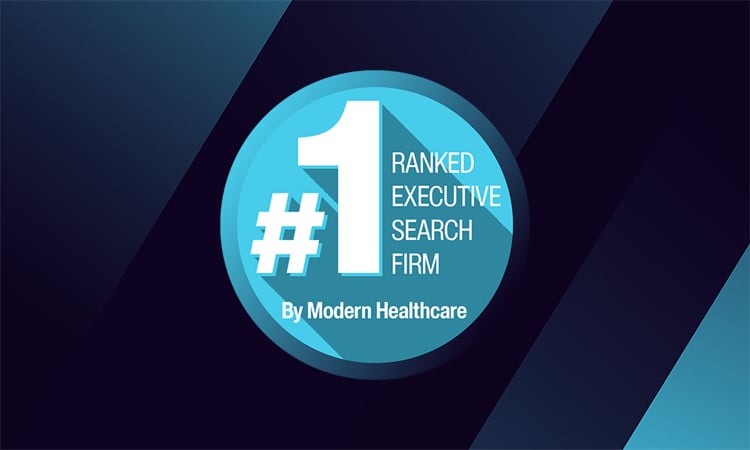
Overcoming Leadership Challenges in Healthcare Part 2
Healthcare is one of the most complex and fast-paced industries, requiring leaders to constantly adapt to challenges, innovations, and a rapidly changing landscape. From navigating regulatory changes to managing workforce shortages, healthcare executives face unique obstacles that demand resilience, emotional intelligence, and strategic decision-making.
This guide explores actionable strategies for overcoming leadership challenges in healthcare and offers insights for CEOs, CFOs, and executives striving to lead their organizations toward success while maintaining excellence in patient care.
Exploring the Core Leadership Challenges in Healthcare
Before strategizing solutions, it's critical to identify the core challenges healthcare leaders face. These challenges include:
- Adapting to Regulatory Changes – The healthcare industry is constantly evolving with new regulations, requiring leaders to stay agile and compliant while balancing quality care and costs.
- Managing Workforce Shortages – Retaining qualified professionals in an overburdened system is a growing struggle for organizations worldwide.
- Controlling Rising Costs – Budget constraints and increasing operational expenses force executives to make difficult financial decisions.
- Navigating Technology Integration – The rise of AI, electronic health records (EHR), and digital systems calls for leaders who can seamlessly integrate technology without disrupting workflows.
- Maintaining Patient-Centric Care – Leaders must strike a balance between innovation, efficiency, and preserving compassionate, patient-focused services.
- Leading During Crises – From pandemics to natural disasters, healthcare professionals frequently operate in crisis mode, requiring effective and empathetic leadership.
Now that we've identified the challenges, it's time to discuss how to approach them strategically.
Strategic Approaches to Healthcare Leadership Challenges
1. Prioritize Emotional Intelligence
Leadership in healthcare isn’t just about operational skills; it’s about managing people in high-pressure environments. Emotional intelligence (EQ) is the ability to recognize, understand, and manage emotions effectively—both your own and those of your team. Leaders with high EQ can foster collaboration, reduce stress, and build trust across their organizations.
How to Improve EQ:
- Practice active listening to demonstrate empathy and create open communication channels.
- Build resilience by reflecting on your ability to handle challenges with a calm, measured approach.
- Recognize team achievements and address employee concerns with honesty and compassion.
Practical Tip: Encourage regular team check-ins and well-being initiatives, creating a work environment where employees feel supported.
2. Create a Vision for Change
Transformation is vital in healthcare, but it can also be overwhelming. A clear vision for change—one that connects with your team on an emotional and practical level—helps overcome resistance and inspires action.
- Highlight the “why” behind the change to show your team the bigger picture.
- Break long-term goals into smaller, achievable milestones to build confidence and momentum.
Practical Tip: Use storytelling to share real-life examples of how changes, such as adopting new processes, directly improve patient outcomes. For example, demonstrate how a new diagnostic tool has saved lives or reduced hospital stay durations.
3. Foster a Collaborative Leadership Model
Gone are the days of top-down, directive leadership. Today’s healthcare challenges require input from individuals across departments, encouraging collective problem-solving and accountability.
How to Build Collaboration:
- Form cross-functional teams to tackle complex challenges, bringing together diverse skill sets and perspectives.
- Encourage transparency by involving team members in decision-making and aligning them with organizational goals.
- Prioritize ongoing feedback between leaders and staff to ensure continuous improvement.
Practical Tip: Assign specific projects to small teams consisting of members from various departments—nursing, IT, and operations—to develop innovative solutions for system inefficiencies.

4. Leverage Data for Decision-Making
Data analytics is a game-changer in healthcare. By analyzing patient outcomes, resource allocation, and operational bottlenecks, leaders can make smarter, evidence-based decisions.
How to Harness Data Effectively:
- Invest in user-friendly analytics tools that integrate seamlessly with your current systems.
- Identify patterns to anticipate demand, from patient admissions to staff scheduling.
- Use predictive analytics to reduce risks in areas like medication management and staffing shortages.
Practical Tip: Create dashboards tailored for executives that provide real-time performance metrics, helping you track key indicators such as patient satisfaction rates or cost savings.
5. Commit to Lifelong Learning
The healthcare landscape is constantly evolving, and so must leadership skills. Committing to continuous professional development ensures leaders stay ahead of trends, regulations, and technological innovations.
Opportunities for Growth:
- Attend industry conferences and webinars to stay informed about emerging trends.
- Network with other executives to exchange ideas and strategies.
- Enroll in leadership development programs tailored to healthcare professionals.
Practical Tip: Designate time in your calendar each quarter for professional development activities. For example, complete an online course on AI in healthcare or attend a health innovation summit.
6. Lead Through Crisis with Confidence
Healthcare leaders are no strangers to crises—and the COVID-19 pandemic underscored the importance of decisive and empathetic leadership during unprecedented times. Being transparent, communicating clearly, and supporting your team emotionally and logistically are essential.
- Stay Calm Under Pressure: Lead with composure to instill confidence in your team.
- Communicate Frequently: Share updates consistently using a variety of channels (e.g., email and team meetings).
- Prioritize Safety and Well-Being: Offer resources and tools to help team members manage burnout.
Practical Tip: Draft a crisis management plan that identifies key players, protocols, and communication channels to keep operations running smoothly during emergencies.
Guiding the Future of Healthcare Leadership
Healthcare leadership requires resilience, adaptability, and vision—qualities that lay the foundation for a successful organization. While challenges may be inevitable, the opportunity to make a lasting impact on patient care and public health is immeasurable.
By fostering emotional intelligence, leveraging data, and prioritizing collaboration, today’s leaders will not only solve existing issues but also shape the future of the industry. Adopting these strategies is not just a way to overcome hurdles—it’s a way to thrive in the face of adversity.
Are you ready to sharpen your leadership skills and take your organization to the next level? B.E. Smith is here to help. With over 40 years of expertise in healthcare executive search and leadership development, we offer tailored solutions that empower executives to lead with purpose and drive innovation.



